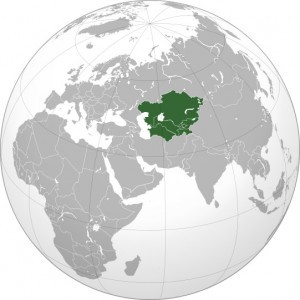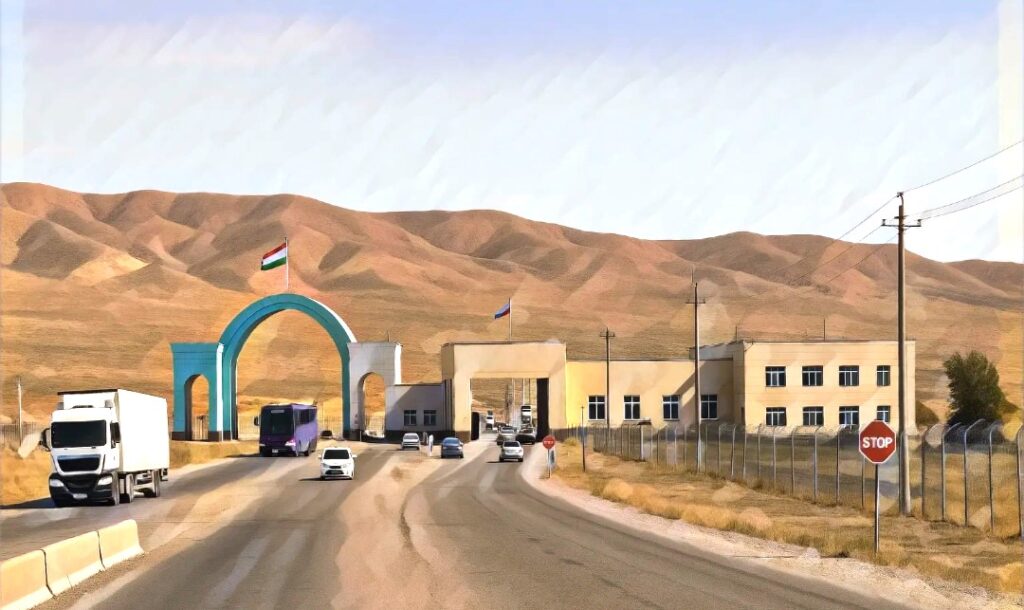BISHKEK (TCA) — The Times of Central Asia presents to its readers Stratfor’s Global Intelligence, a weekly review of the most important events that happened in the world — from Europe to Middle East to Russia to Central Asia to Afghanistan to China and the Americas.
The Week That Was
Let the Mosul Offensive Begin
The first phase in the battle for Mosul is imminent. As U.S.-backed Iraqi security forces and Kurdish peshmerga, Turkish-backed Sunni militias and Iranian-backed Shiite militias gradually converge on the Islamic State stronghold, the coalition will attempt to draw out and disperse Islamic State fighters for easier targeting while the Islamic State works to draw the coalition into a messy urban battle.
The politics surrounding the Mosul offensive is as fractious as ever. Former Iraqi Prime Minister Nouri al-Maliki has been working behind the scenes to reassert his influence. He even managed to get a Chief Justice in the Federal Court to drive forward a decision to declare Prime Minister Haider al-Abadi’s reforms to abolish the vice presidential role as unconstitutional, clearing the way for al-Maliki to regain his position.
The war of words between Ankara and Baghdad is meanwhile getting testier by the day, with Turkey flat out ignoring Baghdad’s protests against Turkish involvement in the offensive, telling the Iraqi prime minister that he should “know his place” and that Turkey will do as it pleases in Iraq. Notably, the Saudis have been cognizant of the limits of their influence in Iraq and for now are hitching themselves to the Turkish plan to keep Mosul and its surroundings in Sunni hands. In fact, during a Turkish meeting with the Gulf Cooperation Council countries in Riyadh this week, the GCC officially declared the social movement led by Turkish scholar Fetullah Gulen a terrorist organization — a very public show of support to Ankara as the Sunni regional powers band together to squeeze Iran’s sphere of influence.
An Egypt-Saudi Spat Amid the Syrian Stalemate
In Syria, stalemate persists. A large group of competing regional stakeholders assembled in Lausanne to try and restart dialogue on Syria, with the United States, Turkey, Saudi Arabia and Qatar on one side and Russia, Iran, Iraq and Egypt on the other. Egypt is the one sitting most awkwardly in the bunch, particularly after Egypt voted against the Arab consensus on a U.N. Security Council resolution on Syria, prompting Saudi Arabia to cut off critical petroleum aid to Cairo. Egyptian President Abdel Fatah al-Sisi is trying to toe a more independent line on the Syrian issue because he is vehemently against any policy that empowers Islamists and because Egypt can afford to keep some distance from the Syria and Iraq conflicts while focusing attention on Libya.
Egypt is also using public displays of cooperation with Moscow to remind Washington and Riyadh of the consequences of not respecting Cairo’s demands. Stratfor will be closely watching Russian-Egyptian military drills that kicked off Oct.15 and last until Oct. 26 in Egypt’s El Alamein desert, a portion of Egypt’s Mediterranean coast near Libya that was the site of some significant WWII battles. The drills will mark the first time that Russian airborne troops have participated in joint exercises with Egyptian troops on Egyptian soil. With Russia claiming it has plans to resurrect Soviet basing in Egypt, it will be important to monitor any activity that suggests Egypt is willing to advance those negotiations and more substantively balance between Washington, the GCC and Moscow.
Russia’s Sanctions Frustrations
Russia’s reinforcement of the loyalist offensive on Aleppo stirred up more debate this week in Europe over whether they should respond to U.S. pressure and apply additional sanctions on Russia linked to Syria. Not in the mood to hear the French president lecture on human rights, an annoyed Russian President Vladimir Putin called off his trip to Paris this week, a trip that was originally intended by Putin to coax French President Francois Hollande into easing up on Ukrainian sanctions. Russia is trying hard to keep the Syrian controversy separate from Ukraine, where it actually can demonstrate limited progress on the ground, but that plan is not exactly working out. Kiev still refuses to move ahead on political reforms for eastern Ukraine and lambasted the French for showing more flexibility in the sequence to implementation of the Minsk accord. Kiev says political concessions only come after the security guarantees are implemented, while Hollande suggested that elections in Donbas could be held once a cease-fire is in places and troops have withdrawn from the line of contact in eastern Ukraine, but before Russian soldiers have withdrawn from the region and Ukraine regains control over its border with Russia. Putin can be assured at least by the signs that the European leaders do not seem willing to go beyond light sanctions — asset freezes and travel bans — if Syria gets bad enough, but even those additional measures make it harder for Russia to negotiate an easing of the Ukrainian sanctions.
The Thai King’s Passing Opens the Door to Instability
The world’s longest-reigning monarch, Thai King Bhumibol Adulyadej passed away this week, opening up a new phase of uncertainty in Thailand. The late King will be missed for his unique ability to rise above Thailand’s deep political and military divisions to keep internal conflict from spilling over. With him gone, and his unpopular son taking over, the stabilizing influence of the monarchy will diminish and reinvigorate simmering political struggles. Strangely, the National Assembly has yet to invite the crown prince to ascend the throne and the crown prince himself said he would delay taking the throne so he could have time to grieve. This delay could enable his powerful opponents to assert themselves during the transitional period and deepen the power struggle.
Japan Counters China in Djibouti Base Expansion
In another move aimed at countering China’s broader maritime influence, Japan announced Oct. 13 that it will lease additional land in 2017 to expand a military base in the East African nation of Djibouti. China began building its own base in Djibouti in February, which will be its first overseas military facility. The Chinese facility is designated as a coastal logistics base for resupplying Chinese naval vessels taking part in peacekeeping, anti-piracy and humanitarian missions. Djibouti also hosts Japan’s only foreign military base, which plays a role in Japanese anti-piracy operations off the coast of Somalia. Japan’s decision to expand its base pushes the rivalry between China and Japan beyond their immediate peripheries as both have been increasing their strategic foothold in Africa, Southeast Asia and elsewhere. It also fits the strategic interests of both countries to play a more active role in securing their maritime supply lines by establishing resupply and logistics points farther from home.
Visible Pushback Against Chinese Military Reform
This week there were glaring signs of pushback against President Xi Jinping’s efforts to streamline and reform the country’s armed services. On Oct. 10 and 11, international media reported that anywhere from several hundred to thousands of former soldiers had gathered in central Beijing to demonstrate what they said was the government’s failure to provide them adequate employment and benefits following their demobilization from the military. In an indication of the central government’s concern over the protests, authorities reportedly dispatched representatives from the Central Military Commission along with several provincial-level officials to negotiate with protesters and escort them to their home provinces. On Oct. 14, the People’s Liberation Army Daily published an op-ed warning of “hostile forces” that sought to undermine military reform by spreading “baseless rumors” regarding pension cuts for soldiers. Beijing has used similar editorials to highlight (and publicly condemn) internal opposition to reforms and related measures before, but the article nonetheless suggests that internal political struggles are brewing behind the scenes ahead of next year’s Party Congress.
Kashagan Adds to Oil Glut
A decade late and six times over budget, Kazakhstan’s Kashagan oil field has restarted exports. The project has reached a total of 90,000 barrels per day so far, with estimates that production could reach 230,000 bpd by the end of the year and 370,000 bpd by next year. Those estimates are likely overly-optimistic, but the additional barrels on the market will add to the supply glut, with further increases expected from Nigeria, Iraq and Libya, diluting the price impact from a potential coordinated production cut or freeze by OPEC and possibly Russia ahead of the Nov. 30 OPEC meeting. In this low oil price environment, the Kashagan consortium will be spending the next decade paying off the $60 billion it took to bring the project online.
The U.S. Responds to Houthi Missile Strikes in Yemen
The U.S. Navy responded to missile strikes from Houthi rebel territory in Yemen with cruise missile strikes against coastal radar stations. The United States will readily respond to any threats to Red Sea shipping, but it is also not keen on deepening its involvement in Yemen and getting bogged down in a fight with the Houthi group. The Saudis are hoping to use the missile threat to ease some of the strain in the U.S.-Saudi relationship and reinforce U.S. support to the Saudi military campaign in Yemen. But Washington will keep its distance and is leveraging both its military support to the Saudis and threat of deeper intervention to try and draw all sides back to the negotiating table.
Regional Government in Belgium Knocks Down EU-Canada Trade Agreement
The regional parliament of Wallonia in Belgium rejected the EU-Canada Comprehensive Economic and Trade Agreement (CETA) out of fear the agreement would flood the region with cheap imports. Hollande is still hoping to steer Wallonian officials toward approving the deal, but the more remarkable point is that the CETA needs not just ratification from the national governments, but also regional governments where applicable. It is another potential complication to keep in mind as the United Kingdom tries to climb an uphill battle in Brexit negotiations with EU members, worrying about vetoes on a subnational level in addition to blocs of countries banding together to veto based on their particular interests. The Czech Republic, for example is already threatening to veto an eventual British agreement if the free movement of people principle is not respected. The principle is already being directly challenged in Europe’s core. The German Cabinet, for example, approved a bill that would deny welfare benefits to unemployed citizens of other EU nations, a notable step in the bloc’s evolution from free movement of EU citizens to free movement of workers.
Japan and Saudi Arabia Team Up on Tech Investment
Japan’s SoftBank announced that it would invest at least $25 billion into a SoftBank Vision Fund for tech investments. The company also signed a deal with Saudi Arabia’s Public Investment Fund (SPIF), which will invest around $45 billion over the next five years into the fund. SoftBank is in talks with other potential investors to bring the funds initial value up to $100 billion. For perspective, $100 billion in investments over the next five years would be roughly equivalent to around one fifth of the world’s venture capital investments, making this one of the largest private equity funds in the world. SoftBank has been focused on making investments and acquisitions in the tech sector while Saudi Arabia is trying to shift its outbound investment strategy away from safer assets toward potentially high-yield investment funds under the Vision 2030 fund.
Full Articles
Why Indonesia Keeps Putting off Its Export Ban
After struggling to grow its domestic smelting capacity, the Indonesian government has announced its plan to revise a ban on raw and semi-processed metal ore exports that was supposed to take effect in January 2017. Under the proposed changes, miners who have built or who are building smelters in Indonesia may continue to export metal concentrates for another three to five years, subject to a progressive tax.
Some miners will welcome the move, and Jakarta will certainly welcome the extra income from leveling additional taxes on resource exports. But the measure could also erode investors’ confidence in the government’s ability to implement mining regulations. Moreover, relaxing the ban will hurt companies that have made substantial investments in developing stand-alone smelters and the infrastructure to support them.
A Dispute in Kashmir Troubles the Waters of the Indus River Basin
The latest flare-ups in Kashmir are troubling the waters between India and Pakistan. Since 1960, both countries have abided by the Indus Waters Treaty, an agreement developed by the United Nations to govern the use of water along the Indus River and its main tributaries. In that time, the treaty has weathered three wars, numerous disagreements and plenty of threats to nullify or breach it. Now, the treaty has come under fire once again. In the wake of an attack on a military base in the Indian-administered area of Kashmir, and a subsequent cross-border raid into Pakistan’s portion of the territory, disputes over the Indus River basin have resurged. Pakistan disagrees with India’s plans for hydropower projects along the Indus, while the government in New Delhi is threatening to review the terms of its arrangement with Islamabad. Still, the odds that the treaty will be formally dissolved — or even violated — are low, though the sound and fury over the agreement could obscure a far graver danger.
A Bitter Budget Battle Looms in the EU
When Britain leaves the European Union, it will take with it the sizable financial contributions it makes to the bloc’s budget. That will leave remaining member states with some difficult choices to make about how big future budgets should be, what they should pay for and how much members should pony up for them. In all likelihood, key policies — from agricultural subsidies to development funds — will have to be redesigned. And as members decide how to proceed, new sources of conflict will arise that will do little to help reverse the bloc’s political fragmentation.
Mauritania’s President Makes a Risky Gamble
Mauritania’s national dialogue, which will wrap up on Oct. 18, was intended to bring members of the opposition and ruling party together to discuss constitutional reform. Several groups, however, have accused President Mohamed Ould Abdelaziz of using the talks to launch a “constitutional coup d’etat.” They claim the president is intent on extending or lifting presidential term limits. Though Abdelaziz still has three years left in his second term, such a controversial move — should he choose to make it — could undermine the stability of the West African nation and the region surrounding it.
Chad Strong-Arms Another Oil Company
As a small producer that depends on oil for 60 percent of its government revenue, Chad has aggressively tried to increase its share of profits from the oil it produces. On Oct. 6, a high court in the country ruled that U.S. supermajor ExxonMobil must pay $819 million in unpaid royalties for oil previously produced by its consortium in Chad. On top of that, the court slapped the company with a fine of $74 billion — around five times Chad’s annual gross domestic product. The proposed fine and royalties will only add to the strain between the Chadian government and international oil companies. But instead of trying to collect its payment, N’Djamena will likely use it as leverage over ExxonMobil in renegotiating its contracts with the company’s consortium, a strategy it often uses to strengthen its control over oil revenues.
The Week Ahead
Debating the Future of Quantitative Easing in Europe
On Oct. 20 the European Central Bank (ECB) will hold its regular monetary policy meeting. No major changes are expected at this point but President Mario Draghi may give some indications over future plans for the quantitative easing program. The bond-buying program is set to expire in March, but Draghi is expected to extend it beyond that point, as ECB inflation targets are still not being hit. That change may take place at the December meeting, along with an expected tweak to the ECB’s self-imposed rules, which limit the number of eligible bonds available for the program. The tweak, a relaxation of the capital key stipulations, would result in the ECB buying more non-German bonds on a proportional basis. German Bundesbank President Jens Weidmann has shown initial resistance, though it is unlikely to stop the changes from being made. Still, it could reveal the friction the ECB can expect from Europe’s largest economy as it enters its election year.
EU Members Debate More Sanctions on Russia
EU foreign affairs ministers will meet on Oct. 17 to start preparations for a summit of all the heads of government of the bloc on Oct. 20-21. During both meetings, EU governments will discuss the bloc’s policy on Russia, at a time when some member states are suggesting Russia should be sanctioned because of its actions in Syria. The meeting comes less than a week after the foreign affairs ministers of Germany, France and Italy announced that sanctioning Moscow was not high on their list of priorities. But leaked conversations published in several European newspapers suggest that some EU members are mulling the option of banning travel by Russian officials and freezing their assets for their links to airstrikes in Syria. Though it still seems unlikely that the bloc will pile on new sanctions, members that want to defend a tough approach toward Moscow may try to link the Ukrainian and Syrian crises to justify keeping the ones already in place.
Duterte Heads to China in Search of Concessions
Philippine President Rodrigo Duterte will embark on a high-profile state visit to China from Oct. 18-21. The visit comes at a time of strategic rebalance by the new administration in Manila, with its attempt to reduce its reliance on the United States and to take advantage of China’s lucrative economic opportunities through more amiable relations. Duterte’s conciliatory statements over China and the South China Sea over recent months, and his seemly unhinged responses to Washington’s criticism on his drug agenda bode well for Beijing. Accompanied by a large business delegation, Duterte will seek Chinese investment and assistance on Philippines poor infrastructure, including rail, power and manufacturing, and aim for addressing the status of illegal Filipino workers residing in China. Both countries could also demonstrate cooperation on the South China Sea, with a joint mechanism over fishing near the Scarborough Shoal a strong possibility.
Turkey’s Central Bank Responds to the Plummeting Lira
Turkey’s central bank will meet on Oct. 20 for its regular monthly meeting, but the stakes on this month’s gathering is particularly high. The Turkish lira has recently reached an all-time low, trading at 3.112 to the dollar as of Oct. 14. Amid enduring calls from President Recep Tayyip Erdogan to lower Turkey’s interest rates to drive domestic consumer spending (a critical driver of revenue in Turkey’s economy), the central bank has steadily dropped interest rates through 2016. However, the plummeting lira puts pressure on the bank to stop slashing rates.
Space Exploration Missions to Watch
Next week there will be a number of space-related developments. ExoMars, a joint project between Russia’s Roscosmos and the European Space Agency will attempt to land its Schiaparelli lander on the Mars on Oct. 19. The ExoMars mission is critical for Roscosmos and its long-standing attempt to restart its space exploration programs, which has essentially been nonexistent since the fall of the Soviet Union. Russia has had to rely on partnerships with more successful European program to achieve those goals. In addition, China on Oct. 17 plans to launch two taikonauts to its Tiangong-2 space laboratory that was inserted into orbit last month. The mission is important for China’s attempts to learn the expertise required to launch a fully functioning space station over the next decade. Its taikonauts will spend 30 days in space, testing China’s life habitat and other related systems.
FARC Talks Restart
The Colombian government and the Revolutionary Armed Forces of Colombia (FARC) will begin discussions in Havana next week over amending previous agreements to end the conflict. This is part of the negotiation process by which the government and FARC will try to make a deal more palatable to Colombia’s political opposition, led by the Democratic Center party, and to its voters. Colombia’s interior minister has expressed optimism that a deal could be reached by year’s end, although issues such as transitional justice mechanisms to provide amnesty to FARC leaders will remain controversial and could slow negotiations. The Democratic Center supports a renegotiation of that part of the original agreement, while the FARC does not wish to see the transitional justice agreement changed.









